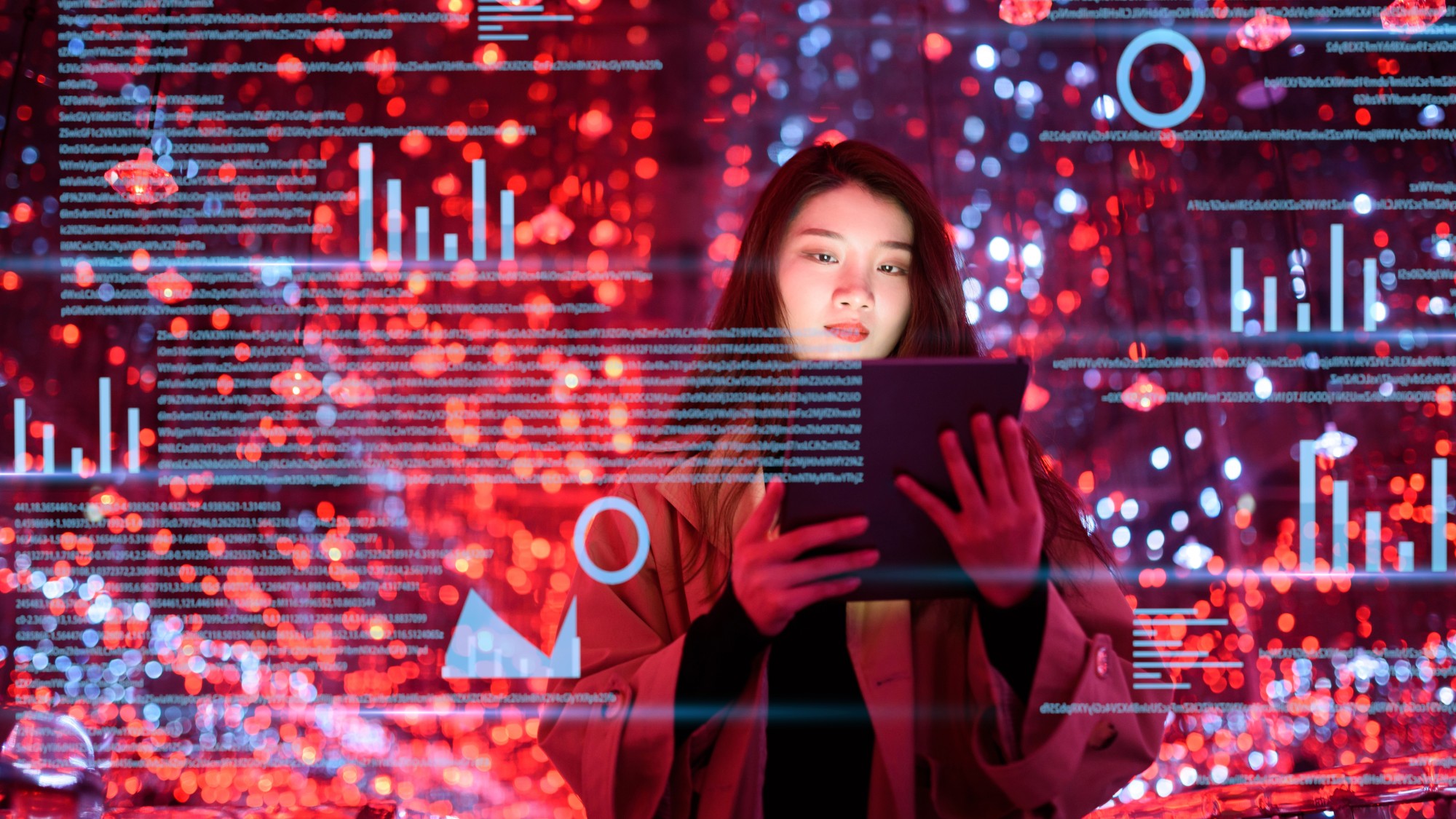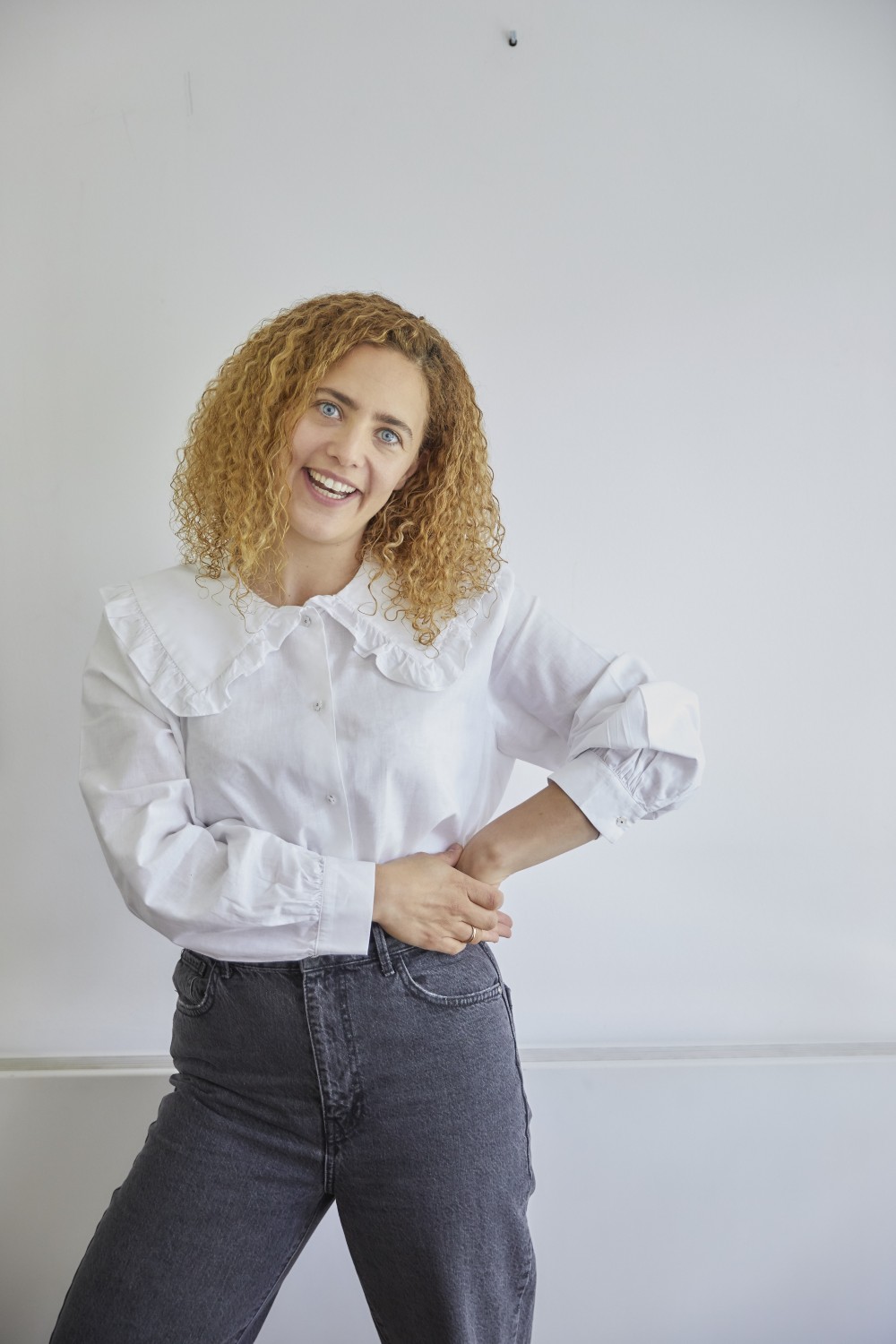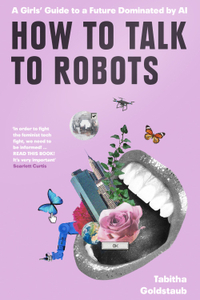What this trailblazing tech entrepreneur wants you to know about AI


Join Marie Claire and Entrepreneur First on Friday 12th Feb at 1pm for a special STEM panel in light of National Women and Girls in Science day. Editor in Chief of Marie Claire, Andrea Thompson, and Co-founder of Entrepreneur First, Alice Bentinck, speak to a host of successful female founders who are making waves across their industries.
It’s Women in Tech week at Marie Claire. In honour of International Day of Women and Girls in Science, we're spotlighting the female trailblazers changing the face of the tech industry. Next up is Tabitha Goldstaub: tech entrepreneur, innovator and author of a brilliant book debunking AI for girls. Here, she talks harnessing AI for a better world and getting more women and girls into tech.
Tabitha Goldstaub knows a thing or two about AI. As a serial tech entrepreneur – most recently as the co-founder of CognitionX, an AI Advice Platform connecting organisations with a network of experts – chair of the UK government's AI Council, former Marie Claire Future Shaper and now author, Goldstaub has cemented herself as the UK's leading voice in campaigning for gender diversity in AI development.
Following a degree in advertising, she kicked off her career at London-based content studio T5m, where she worked as a video syndication director before leaving to co-found Rightster in 2011. An online video distribution and marketing network, among its innovations Rightster pioneered the live streaming of London Fashion Week. (So in a way, we've Goldstaub to thank for this year's shows getting the virtual go-ahead.)

Goldstaub co-founded CognitionX in 2015 with Charlie Muirhead in order to demystify the $27.23 billion (and counting) industry. And now, she's debunking Artificial Intelligence for young women, too, thanks to her A–Z manual How To Talk To Robots: a Girls' Guide to a Future Dominated by AI.
As we bring an inspiring week of interviews with female STEM leaders from across the globe to a close, we caught up with Tabitha to talk harnessing AI to tackle climate change, and robots taking hold of our jobs.
Marie Claire Newsletter
Celebrity news, beauty, fashion advice, and fascinating features, delivered straight to your inbox!
Over to Tabitha...
How To Talk To Robots: a Girls' Guide to a Future Dominated by AI by Tabitha Goldstaub – £12.99 | Waterstones
How AI is impacting the world we live in: from education to climate change
'I believe that Artificial Intelligence has the potential to improve human quality of life significantly. From healthcare and education, to revolutionising the world of work, to helping address the climate crisis. If governed and developed ethically, the potential rewards of AI are endless.
For me personally, someone who lives with Dyslexia, I value the AI tools that help me with my spelling and grammar day-to-day. It’s exciting to see the AI we are now seeing in schools that’s able to support teachers to personalise how children are taught. The tools are able to build on existing digital resources and identify strengths and concerns to create unique experiences – which I believe will really help children like me who struggled to learn the conventional way.
Equally exciting much further afield is the potential AI has to help us in the battle against the climate crisis. AI can create models and projections about weather, help us identify methods for reducing CO2 emissions, manage energy demand, help us track forest fires and food waste, and so much more. When facing a challenge as great as global warming and achieving net zero, we need the extra muscle that AI affords the scientists.
How is AI changing the world of work?
Artificial Intelligence is already affecting our jobs. So many tools that we use such as calendar managing apps, autocorrect and email tools all use AI to help manage our working lives.
In the future AI will only become more prevalent. One exciting impact AI could have is revolutionising our to do lists so we can skip all the boring stuff! AI will speed up the mundane tasks that take up so much of our time, whether it be marking for teachers, or replying to the onslaught of emails that we all deal with on a daily basis. This will allow people to spend more time on tasks requiring creativity, innovation, problem solving, caring and rest too. AI will also be able to take over many of the jobs that are too dangerous for humans, such as shutting down a leaky nuclear reactor, cleaning sewers or defusing faulty electronics.
Equally, there may be some slightly more daunting changes on the horizon for AI and the world of work. While Artificial Intelligence won’t be the cause of job losses, there is certainly a risk that an AI is programmed to do something beneficial such as automate a part of someone’s job and cause them to risk losing it all together. What concerns me the most is that statistically there is an 11% risk of women losing their jobs versus a 9% risk for men. This is why I wrote How To Talk To Robots: a Girls Guide to a Future Dominated by AI to arm women with the confidence I hope will lead to a better understanding of AI and give people a head start to ensure AI works for them, not they for it!
How do we make tech more appealing to women?
We need to continue the dialogue about the necessity of having women in technical roles, and ensure that the companies building the next generation of software, hardware and AI both hire for and include diversity at all levels of the engineering team, and ensure they enable a safe space for women to thrive.
Secondly, we need to carefully address the strong narrative in schools and wider society that tech is for men. I love that Marie Claire is having a Tech Week as it shows that women who enjoy beauty, fashion and tech can co-exist. All media has a role to play in helping young women feel supported, inspired and encouraged into tech.
Finally we need to acknowledge that tech is not just about techies. In order to build Artificial Intelligence we need more than just the engineers. Good tools need every background and interest, they need artists, designers, historians, philosophers, writers and many more to be a part of the development. Now is really the time to get involved. Think about how AI is affecting your work and find a way to get closer to the action - the team building the tech needs you more than you need them.'
Kate McCusker is a freelance writer at Marie Claire UK, having joined the team in 2019. She studied fashion journalism at Central Saint Martins, and her byline has also appeared in Dezeen, British Vogue, The Times and woman&home. In no particular order, her big loves are: design, good fiction, bad reality shows and the risible interiors of celebrity houses.
-
 I was told I was too girly to be gay — When will society stop judging women on how we look?
I was told I was too girly to be gay — When will society stop judging women on how we look?Why femme invisibility is a feminist issue
By Roxy Bourdillon
-
 Walking workouts are the hottest form of exercise RN - 5 best walking workouts for beginners to boost fitness and mood
Walking workouts are the hottest form of exercise RN - 5 best walking workouts for beginners to boost fitness and moodYour ultimate guide.
By Katie Sims
-
 I have no time to be faffing with brushes, but a make-up sponge is an essential in my routine—here are the 6 best
I have no time to be faffing with brushes, but a make-up sponge is an essential in my routine—here are the 6 bestEssential for smooth, seamless skin
By Mica Ricketts
